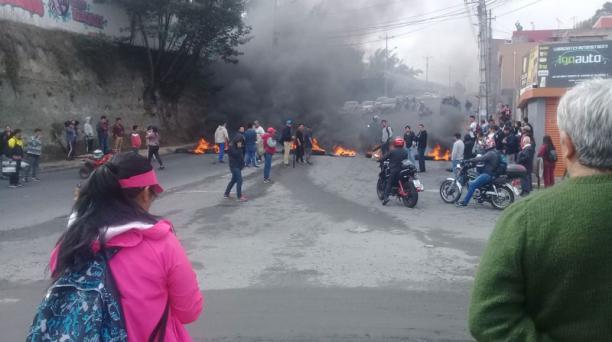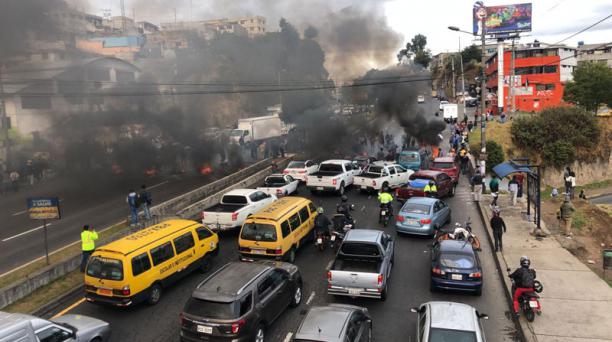(I’m going to preface this by saying featured photos are NOT mine – they come from the newspaper El Comercio.)
So I’m sure some of you are aware of what’s been going on in Ecuador recently, but in case you’re not, here are the basics: The federal government has been subsidizing gas for years, making the prices extremely cheap ($1.20ish per gallon). The current president decided to remove subsidies to try to save the government money, so that it can be used elsewhere, causing prices to rise to market price overnight ($2.50ish per gallon). However, bus fares and some other prices are standardized by the government.
Because of this, transport personnel went on strike to protest the raise in prices and demand a raise in fares to match. The government has been working with the unions to make a deal, and while most strikes are over, the indigenous people and other protest groups have come into the city to protest as well. The protests involve blocking the roads, sometimes with flaming tires or cars, as well as some rock-throwing. Most public transport has been shut down all week (some are running, but very irregularly).

Why did I want to write about this? Basically to talk a little about what it’s like to be abroad in a country experiencing some level of civil unrest. Personally, I don’t feel unsafe. I’m in a suburb of Quito with a host family, and I do not feel like I’m threatened in the house at all. However, transportation and movement within the country has been severely restricted.

This week was fall break, and many people planned to take buses out of Quito to visit other provinces. However, those buses have stopped running, and those that do run can take up to 2 days to make a 6 hour trip. In my area, roads are no longer blocked, but those around the historic district are full of protesters, both for and against the government. We have been told by the organizers of the program that we should not travel by road (car or bus) to any other location in Ecuador, and that it is advised that we stay within the city to avoid the blockades. We also need to be extremely careful to stay away and out of the protests; as international students and foreign citizens, we are not allowed to participate or even be in the vicinity of the marches. I’ve gotten an email from the state department about the situation pretty much every day since the demonstrations started.
Thankfully, this has happened over break, which means that classes haven’t been affected at all. I have also been traveling (by plane) during the break, so I have not had to suffer from the “house arrest” that some people have been under because of lack of transportation. My host mom went to the store and said that people have purchased all of the meat, and a lot of other foods. Honestly, it reminds me strongly of a really bad snowstorm, where everyone is told to stay inside and grocery stores are low on food because of the number of people purchasing food.
As of right now, the government has finally made an agreement with protesters, after 12 days of striking. We are hopeful that this means we will have peace, and life can go back to normal!

